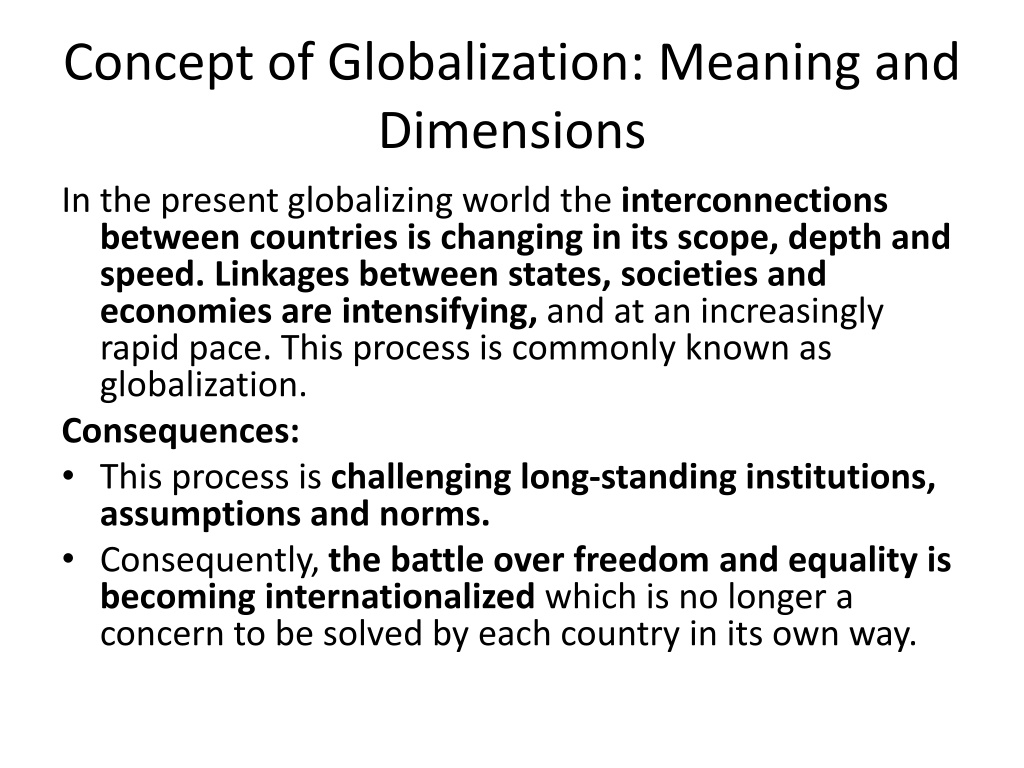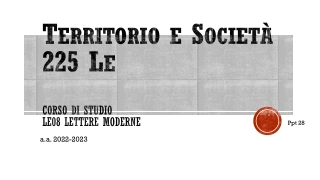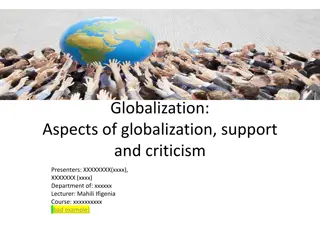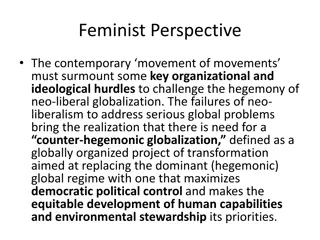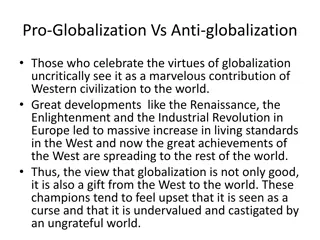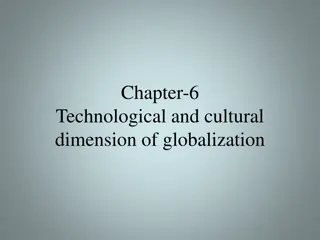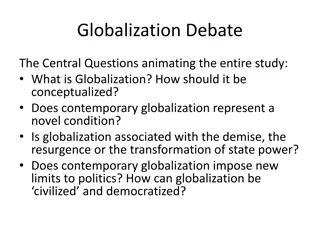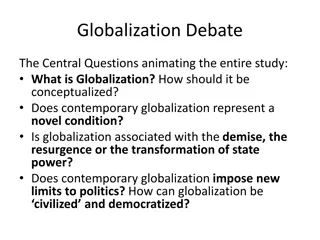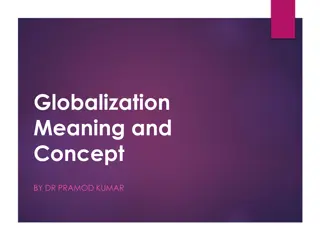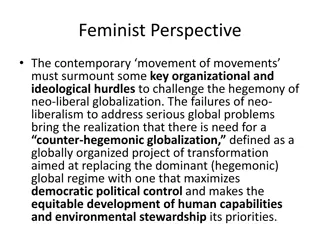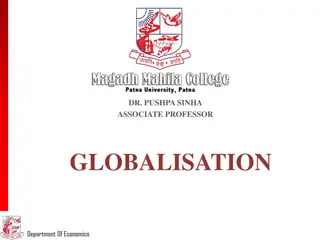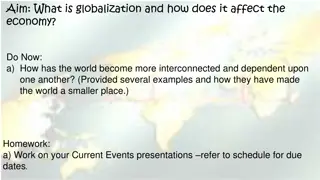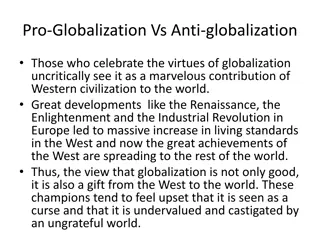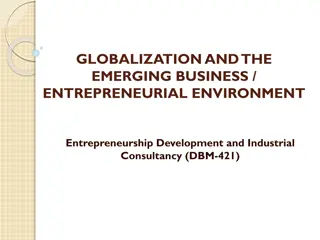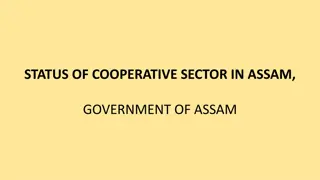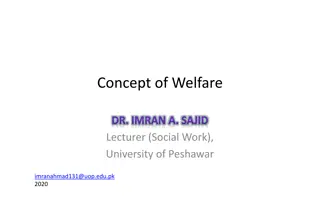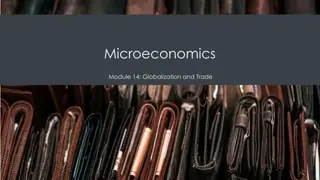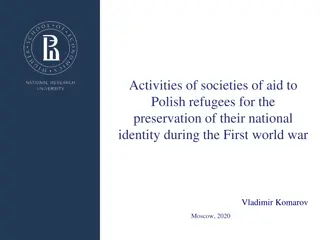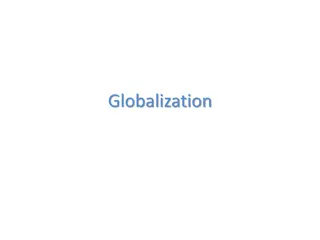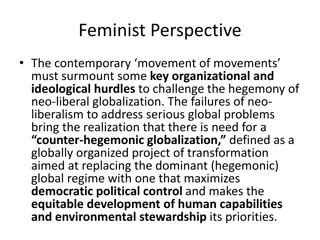Understanding the Impact of Globalization on Institutions and Societies
In today's globalizing world, the concept of globalization is reshaping interconnections between countries, challenging established institutions and norms. The process of globalization has far-reaching consequences, affecting areas like politics, economy, and culture. This interconnectedness has blurred the lines between international and domestic affairs, presenting both opportunities and challenges. This change is altering traditional relationships of time and space, impacting how institutions operate on a global scale.
Download Presentation

Please find below an Image/Link to download the presentation.
The content on the website is provided AS IS for your information and personal use only. It may not be sold, licensed, or shared on other websites without obtaining consent from the author. Download presentation by click this link. If you encounter any issues during the download, it is possible that the publisher has removed the file from their server.
E N D
Presentation Transcript
Concept of Globalization: Meaning and Dimensions In the present globalizing world the interconnections between countries is changing in its scope, depth and speed. Linkages between states, societies and economies are intensifying, and at an increasingly rapid pace. This process is commonly known as globalization. Consequences: This process is challenging long-standing institutions, assumptions and norms. Consequently, the battle over freedom and equality is becoming internationalized which is no longer a concern to be solved by each country in its own way.
Globalization-the Process in Past and Present From earliest times human beings around the world maintained and developed long-distance connections between one another through migration and trade. These contacts helped spur development through the dissemination of knowledge and innovations. Globalization goes beyond simple international contacts and interaction Robert Keohane and Joseph Nye find one important distinction between globalization and these age-old ties in that many of these long-time relationships were relatively thin , involving a small number of individuals. Such connections were not intensive in their volume and personal impact even if they were extensive across a vast region. The web of global connections becomes increasingly thick , creating an extensive and intensive web of relationships between many people across vast distances.
Nature and Impacts of Contemporary Globalization People are not now distantly connected by traders, diplomats, and missionaries. They are now directly participating in a vast and complex international network through travel, communication, business, and education. Potential Implications of Globalization: Due to the thickening of connections globalization breaks down the distinction between international relations and domestic politics, making many aspects of domestic politics subject to global forces- e.g. debates over environment policy, struggles over employment, or health care.
Potential Implications of Globalization(Contd.) Globalization can also amplify politics in the other direction, essentially internationalizing domestic issues and events- e.g. local events, even small ones, can have ripple effects through out the world. The speed with which such interconnections travel is amazing and this makes a phenomenal difference- a new software upgrade can be downloaded worldwide simultaneously. The Internet allows the rapid dissemination of news and ideas from every corner of the globe-the world lives increasingly in the same moment. In the process traditional relationships of time and space are changed
Impacts of Globalization on Institutions The process of more extensive and intensive connections across the globe can, in turn, change the institutions of economics, politics, and societies States, culture, property, and markets are all institutions which establish borders, set boundaries for activity and behaviour Space and time are thus understood and measured through institutions Long-standing institutions like states, cultures, or political economic systems now face a range of international forces and organizations that transform, challenge, or threaten their traditional roles.
